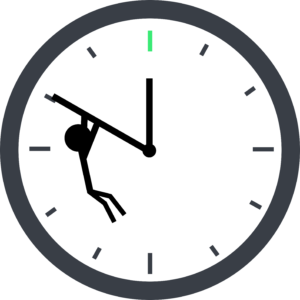
Tracking and Improving Sleep | Tools and Strategies for Restful Nights
Sleep is the foundation of health and longevity, yet many of us struggle to achieve consistently restful nights. Tracking your sleep can provide valuable insights into your habits and help identify areas for improvement. With the right tools and strategies, you can optimise your rest, supporting both physical health and mental clarity.
In this guide, we’ll explore the benefits of sleep tracking, popular tools, and actionable steps to improve your sleep based on your data.
The Benefits of Tracking Sleep
Sleep tracking isn’t just for athletes or tech enthusiasts—it’s a practical way for anyone to understand and improve their rest. Here’s how tracking can help:
- Identify Sleep Patterns
-
- Tracking shows when you’re achieving deep, restorative sleep versus lighter stages of rest.
- Detect Sleep Disruptions
-
- Monitoring can highlight issues like frequent wake-ups, snoring, or restlessness that you might not notice otherwise.
- Tailor Your Routine
-
- Data helps you adjust habits, such as bedtime routines or meal timing, to support better sleep quality.
- Monitor Progress
-
- Seeing improvements over time motivates you to stick with positive changes.
Popular Tools for Sleep Tracking
Today’s technology makes it easier than ever to monitor your sleep. Here are some of the most effective options:
- Wearable Devices
-
- Smartwatches: Devices like the Apple Watch and Fitbit track sleep stages, heart rate, and movement.
- Fitness Trackers: Bands like the Garmin or Whoop are lightweight and focus on detailed sleep insights.
- Mobile Apps
-
- Sleep Cycle: Tracks sleep patterns using your phone’s microphone and offers tips for improvement.
- Calm: Combines meditation with sleep tracking to support better rest.
- Smart Home Technology
-
- Smart Mattresses: Options like Eight Sleep monitor body temperature and sleep cycles.
- Ambient Devices: Tools like white noise machines or light-adjusting smart bulbs create an optimal sleep environment.
How to Interpret Sleep Data
Tracking tools generate a wealth of data, but understanding it is key to making meaningful changes. Here are some metrics to focus on:
- Sleep Duration
-
- Aim for 7–9 hours per night, noting if you consistently fall short.
- Sleep Efficiency
-
- This measures the percentage of time spent asleep versus in bed. Aim for 85% or higher.
- Sleep Stages
-
- Ensure you’re getting enough deep and REM sleep, which are critical for physical repair and cognitive function.
- Wake-Ups
-
- Frequent wake-ups or restlessness may indicate stress, discomfort, or environmental issues.
Strategies to Improve Sleep Based on Tracking Data
Once you’ve analysed your sleep data, use these strategies to make improvements:
- Optimise Your Sleep Environment
-
- Address issues like noise, light, or temperature that your tracker identifies as disruptive.
- Adjust Your Bedtime Routine
-
- If tracking shows difficulty falling asleep, incorporate relaxing activities like reading, meditation, or stretching.
- Monitor Lifestyle Factors
-
- Use data to see how factors like late meals, alcohol, or exercise timing impact your rest, and adjust accordingly.
- Manage Stress
-
- Tracking stress-related disturbances can motivate you to adopt relaxation techniques or mindfulness practices.
- Seek Professional Guidance
-
- If your data indicates persistent issues, consider consulting a sleep specialist for personalised advice.
Debunking Myths About Sleep Tracking
Despite its benefits, some misconceptions can discourage people from trying sleep tracking. Let’s clear up a few:
- Myth: Sleep Tracking Is Too Complicated
Many tools are user-friendly, with clear instructions and insights tailored to beginners. - Myth: It’s Only for Athletes
Sleep tracking is valuable for anyone looking to improve their health and longevity. - Myth: You Need Expensive Equipment
Affordable options like apps or basic trackers can provide significant insights.
Practical Tips for Staying Consistent
- Review Data Regularly: Check your metrics weekly to identify patterns and track progress.
- Start Small: Focus on one or two changes at a time to avoid feeling overwhelmed.
- Celebrate Wins: Acknowledge improvements, like fewer wake-ups or better energy levels, as motivation to continue.
Your Path to Restful Sleep and Longevity Starts Here
Tracking and improving your sleep is a powerful way to support your health and longevity. By using modern tools and applying data-driven strategies, you can enjoy more restful nights, better energy, and a greater sense of wellbeing.
At Slowing the Clock, we’re here to guide you with practical tips and evidence-based advice for optimising your sleep and overall health. Explore our website for more resources on sleep, recovery, and personalised health strategies.